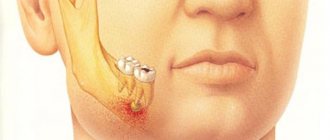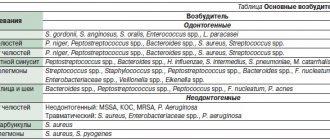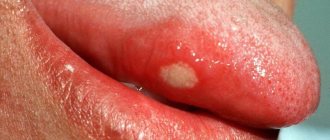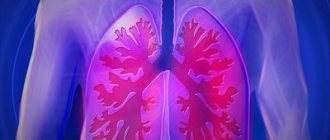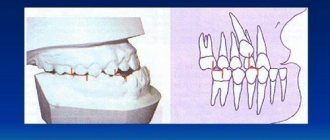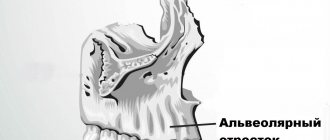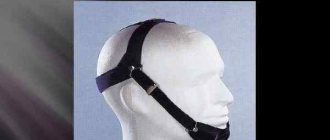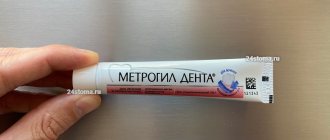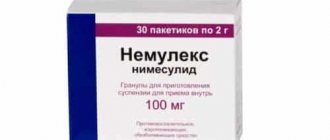Is it possible to treat teeth if you have a cold?
If the high temperature is caused by ARVI, herpes or other infectious diseases, then it is better to reschedule the appointment. The body at this moment is weakened and tuned to eliminate the disease, which means that the recovery process after dental treatment will be delayed. If you have a runny nose or cough, it will be difficult to sit in the dental chair during treatment. In addition, there is a high risk of spreading infection to the staff and other patients of the clinic.
However, there are situations when treatment cannot be delayed. In this case, you need to consult with your doctor, preferably by phone. He will decide whether to subject the weakened body to dental intervention or not.
How to prevent your temperature from rising
- After extraction of a molar, incisor or molar, the doctor’s recommendations should be followed. How to behave as a patient:
- do not eat or drink for the first 2 hours;
- do not chew on the affected part of the jaw;
- do not smoke – preferably for several days and definitely on the first day after the procedure;
- do not rinse your mouth without a doctor’s prescription - this helps wash out the blood clot;
- Until recovery, refrain from visiting public places - baths, saunas, procedures with a cosmetologist;
- do not touch the wound with your fingers or a toothbrush;
- take prescribed antibiotics, anti-inflammatory drugs;
- come for examination at the appointed time;
- do not heat or rinse your mouth with alcohol-containing preparations, vodka, or alcohol.
A day or two after removal, the doctor will prescribe baths with antibacterial drugs. The liquid should be collected and held, but not rinsed.
What if the cause of the elevated temperature is not a cold?
Often, an increase in temperature can be associated with inflammatory diseases in the oral cavity. For example, a cyst could form in a tooth or gum - a cavity filled with fluid. And elevated temperature is nothing more than the body’s reaction to protect itself from the spread of infection.
In an advanced state, the cyst affects neighboring teeth, so if you notice such symptoms, you need to consult a dentist.
By the way, a dental cyst is diagnosed using an x-ray - this is one of the reasons why it is necessary to undergo regular check-ups with a doctor. Treating the cyst at an early stage will protect you from possible complications, including tooth extraction.
How to help yourself at home with a hyperthermic reaction
After extraction of a molar, canine or incisor, the surgeon will give recommendations and explain possible reactions of the body. Therefore, the patient must follow the rules of oral care:
- Do not consume food or drinks for 2 hours after the procedure. Do not chew on the affected side of the jaw.
- Take antibiotics as prescribed by your doctor, rinse your mouth with antiseptic solutions.
- If your temperature rises, you need to monitor your condition. It is allowed to take antipyretics based on paracetamol or ibuprofen as prescribed by a doctor. For adults - in tablet form, for children - in the form of syrups in dosages according to age or suppositories at night or during daytime sleep.
- Drinking plenty of fluids and rest are recommended. The patient should be in a ventilated area. There is no need to wrap yourself up or do any thermal procedures.
What you can and cannot do after tooth extraction
If the temperature does not subside on its own or the condition worsens, you should contact a medical facility. If it rises to 39 degrees or higher, call an ambulance.
Temperature after dental treatment
A slightly elevated temperature after dental treatment is a normal reaction to intervention in the body’s tissues, especially after treatment of complex diseases (pulpitis, periodontitis). Sometimes weakness and drowsiness may appear, which can be relieved with antipyretics, but you should not get carried away with them.
If three days have passed after treatment and the fever does not go away, you should consult a doctor: he will conduct an additional examination and prescribe the necessary treatment.
When you really can’t do without a doctor
Any hyperthermia lasting more than 3 days is a reason to consult a doctor.
Symptoms after tooth extraction
Symptoms for immediate examination by a dental surgeon:
- increased pain 1–2 days after molar extraction;
- swelling of the gums, cheeks;
- gum hyperemia;
- discharge of blood and pus from the wound cavity;
- bad breath;
- enlarged lymph nodes under the lower jaw, behind the ears.
The dentist will conduct an examination. According to indications - cleaning and washing the wound, removing tooth fragments or roots, applying antibacterial drugs to the wound, suturing the wound.
After cleaning the wound, the inflammation subsides and the temperature drops. The doctor will prescribe additional treatment - a visit to wash the wound and apply antibacterial dressings, take antibiotics, rinse with antiseptics.
Toothache in children
If the described symptoms occur in a child, parents should start with an independent examination of the oral cavity - often a diseased tooth can be noticed on its own. If the pain is caused by a piece of food stuck in your teeth, you can carefully remove it yourself. The child’s diet is designed so that excessively cold or hot foods, as well as salty and spicy foods, are excluded. The mouth should be rinsed with herbal decoctions or a warm solution of baking soda.
Before going to the dentist, it is better for children to rinse their mouths with special solutions or decoctions.
As mentioned above, a visit to the doctor cannot be postponed. If for some reason it is not possible to immediately contact specialists, you can provide first aid yourself. Children's analgesics with ibuprofen and warm rinses will help.
Remember ! These are exclusively temporary measures and not a replacement for full treatment and diagnosis.
How to relieve toothache in children?
If pain occurs during teething, you can use auxiliary means - dental rings or cooling ointment. Teething rings can be purchased at the pharmacy. They are filled with a special gel, and it is better to cool them before use. Gels and ointments for gums can be purchased at the pharmacy. They should be prescribed by a doctor, taking into account the characteristics of the child’s body. You can give small pieces of carrots or apples to chew.
To relieve teething pain, it is recommended to purchase special rings
| Problem | Treatment |
| Pain caused by caries or pulpitis | This position will make it easier to rinse with a warm baking soda solution every 15 minutes. Decoctions of medicinal herbs such as chamomile, St. John's wort, mint, chicory and others can be used. |
| Another option is compresses with dental drops. This product can be purchased at a pharmacy; it is a liquid pain reliever consisting of infusions of valerian, camphor and mint oil. | |
| Gum inflammation | If there are no problems with allergic reactions, you can try a remedy such as clove essential oil. It is applied to a gauze pad and placed on the gum and/or aching tooth. |
| Another option is to massage the auricle on the side where pain is felt (this helps due to irritation of biologically active points). | |
| Pain after tooth extraction | Such pain can be relieved by rinsing with soda and mild children's painkillers. |
Important ! Pediatric anesthetics can also help, but they should be used carefully, in accordance with age standards.
It is best to prevent such problems from occurring and take your child to regular dental appointments. There are many children's clinics where examinations can be carried out easily and painlessly, with playful elements. It is very important to develop the right attitude towards treatment in a child and prevent fear of dental procedures at an early age.
To prevent dental disease, you should regularly visit the dentist with your child.
To prevent problems with teeth and oral cavity, it is necessary to follow a proper diet, eat foods rich in phosphorus, vitamins (especially vitamin D), and calcium from early childhood. The consumption of fast carbohydrates and sugars is limited. A good habit is to rinse your mouth after meals and brush your teeth regularly. For children, it is better to use children's toothpastes with a special composition containing substances to protect thin enamel.
After implantation
Implantation is an operation to implant an artificial titanium root into the bone tissue of the jaw , on top of which, after regeneration is completed, an abutment and crown are fixed. Such treatment is always difficult and traumatic. It is performed under local anesthesia and requires long-term rehabilitation.
Meanwhile, it is implants that make it possible to restore the integrity of the dentition without damaging healthy units. Their installation is not associated with grinding down the “neighbors” or root canal treatment. Implantation is indicated if the tooth is completely destroyed, and even its roots are unsuitable for prosthetics.
Dentists always warn that after installing a titanium base, an elevated temperature may persist for three to five days, and this is normal. Fever indicates the active occurrence of regenerative processes. To avoid possible complications, the patient must take medications prescribed by the implantologist strictly according to schedule.
It is important to understand that the line between normality and pathology is very thin. Fever after implantation can also be a dangerous signal. So, sometimes it indicates rejection of an artificial structure. Then the person feels severe pain in the area of the surgical intervention, observes swollen gums from which pus is released, and constantly feels an unpleasant taste in the mouth. Soon the implant becomes mobile, which indicates its active rejection.
In this case, there is no point in hoping that the situation will normalize on its own. You need to go to the doctor immediately. The sooner the patient visits the doctor who implanted the implant, the higher the chances of stopping further progression of inflammation. If time is lost, the titanium base will most likely have to be removed.

